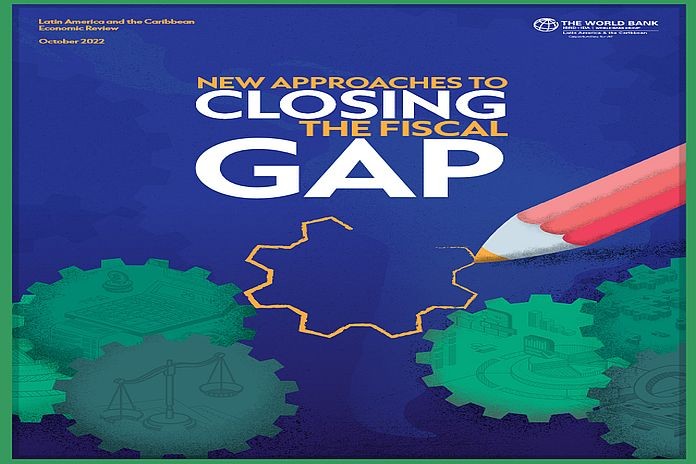WASHINGTON, USA – Latin America and the Caribbean economies have recovered to their pre-pandemic levels and the region has regained some sense of normalcy, but economies need to be reignited in order to avoid a new low-growth cycle. Social and infrastructure investments can be key drivers of growth and shared prosperity, according to a new World Bank report, “New Approaches to Closing the Fiscal Gap.”
The report estimates regional GDP will grow by 3.0 percent in 2022, a higher than previously expected rate due to rising commodities prices.
However, strong global uncertainty as a result of the war in Ukraine, higher interest rates in developed countries and the persistent inflationary pressures will impact economies in the region. Low growth rates of 1.6 and 2.3 are expected in 2023 and 2024, respectively, similar to the lackluster levels of the decade of 2010 and insufficient to achieve significant progress in reducing poverty. Inflation, while for most countries is at OECD levels, will require continued efforts to reduce to previous target levels.
“Most economies have returned to pre-pandemic levels, but that is not enough. Countries in the region have the opportunity to rebuild better after the crisis and achieve more just and inclusive societies,” said Carlos Felipe Jaramillo, World Bank Vice President for Latin America and the Caribbean. “In addition to undertaking the reforms and investments critical to lifting growth, governments need to address the structural costs- the lost years of education, missed vaccines, and the delayed impacts of food insecurity that the recovery of GDP obscures.”
The region is well placed to rethink its development path. Employment levels have almost fully recovered to pre-pandemic levels, schools have reopened and, with exceptions in the Caribbean, the high rate of vaccination against COVID-19 allowed for a return to normalcy.
However, scars from the crisis remain and need to be addressed. Monetary poverty fell from 30 percent in 2021 to 28.5 percent in 2022, a level still very high, and the long-term costs of the crisis in health and education must be urgently redressed both to revive growth and mitigate increases in inequality.
“Managing higher debt burdens arising from the crisis while generating enough fiscal space for growth promoting investments requires carefully considered new sources of revenue, but also better use of existing spending. On average 17 percent of government spending could be saved and in 2/3 of countries, these savings could erase current budget deficits.” said William Maloney, chief economist for Latin America and the Caribbean at the World Bank. “Rationalizing state spending is a step toward building more efficient, responsive and trusted governments.”
The report suggests countries should carefully examine public spending and tax policy options, in order to favor equity and avoid possible adverse effects. This includes improving spending efficiency: on average, 4.4 percent of GDP – or 17 percent of public spending – is currently wasted on badly targeted transfers, poor procurement practices, and inefficient HR policies.






